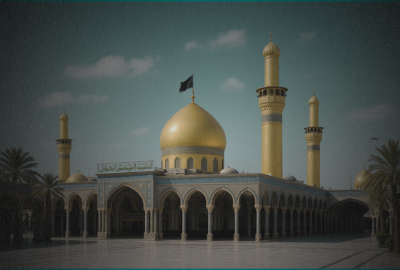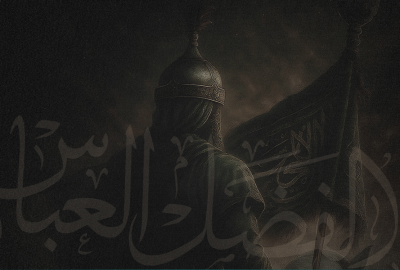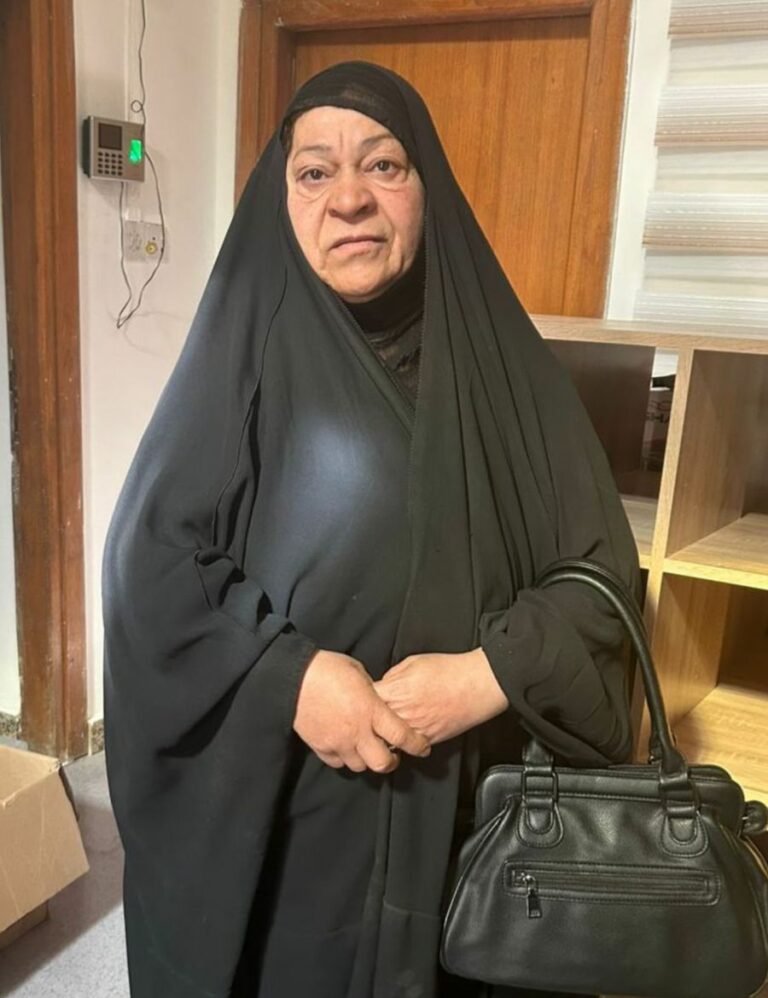Echoes of Karbala: Narrations of Muharram
Across the world, as the crescent of Muharram appears, a familiar scene unfolds. Black banners are draped across mosques, Hussainiyas and homes. The alam of Hazrat Abbas (as) is raised high, a powerful symbol of loyalty and steadfast faith. In gatherings large and small, voices echo with poetry, latmiyas and nohas, expressing a grief passed down through generations.
People arrive dressed in black, ready to listen, mourn and remember. Every majlis becomes a space where sorrow and love intertwine.
All of this is done out of love for Hussain ibn Ali (as), the beloved grandson of Prophet Muhammad (saww). That love ignites a flame in the hearts of believers, one that is rekindled every Muharram.
Prophet Muhammad (saww) is reported to have said, “Surely, there exists in the hearts of the believers, regarding the martyrdom of Hussain (as), a heat that never subsides.”
(Mustadrak al Wasail, v. 10)
Many narrations help us understand the magnitude of this tragedy. A few of these hadith are below.
Followers of the Ahlulbayt (as)
As followers and lovers of the Ahlulbayt (as), we are called to share in their emotions. When they rejoice, we celebrate. When they grieve, we mourn.
In the Quran, Allah (swt) says in Surah ash-Shura, “(O Muḥammad), say (to your followers), “I do not ask of you any reward for it (i.e., the task of conveying Allah’s message to you) except love for my near relatives.” And whoever performs the good deed (by loving The Prophet’s family), We shall increase for him in its goodness. Surely Allah is Forgiving and Thankful (to those who love the Prophet’s family). (42:23)
Imam Ali (as) is also reported to have said, “Surely, Allah (swt) has chosen for us (the Ahlulbayt [as]) followers (Shias), who assist us and are happy at our happiness and are sad in our sadness.” (Ghurar al-Hikam, v.1)
The Tragedy of Karbala brought immense sorrow to the Holy Household (as), and so it must be a period of mourning for us as well.
The Remembrance of Imam Hussain (as)
Throughout the year, believers continue to honor Imam Hussain (as). On Thursday nights, Ziyarat Waritha is often recited. During nights of special a’maal such as Laylatul Qadr, his Ziyarat is once again brought to our lips and hearts.
Why so often? Because his sacrifice preserved the essence of Islam. Through him, we are drawn closer to Allah (swt).
The Prophet (saww) is reported to have said, “By He (swt) who sent me as a prophet with truth that the remembrance of Hussain (as), the son of Ali (as), is greater in heaven than on the earth. On the right of Allah’s (swt) throne, he [Hussain (as)] is written as ‘the lamp of guidance and the ship of salvation’.” (Bihar al-Anwar, v.36)
Sincere remembrance allows our hearts to grow nearer to the Prophet (saww) and to Allah (swt).
This can be seen in a tradition attributed to the Prophet (saww) where he says, “Hussain (as) is from me and I am from Hussain (as). Allah (swt) loves whosoever loves Hussain (as).” (Kitab al-Irshad, p.249)
His martyrdom not only kept his mission alive, but continues to keep our spirits awake and connected to divine truth.
As Allah (swt) reminds us in Surah al-Baqarah, “Do not speak of those who are slain in the way of Allah as dead; nay, they are alive, but you do not perceive (how they live).” (2:154)
Ashura: A Day Like No Other
The Day of Ashura stands apart from every other day in history. It is a day of grief, sorrow and heartbreak.
Imam Hassan (as) is reported to have said, “O Aba Abdillah (as)! There is no day like your day, when 30,000 people who call themselves as followers of our grandfather (saww) and who call themselves Muslims will gather around you, shed your blood, dishonor you and capture your sons & women, and plunder your property.” (Al-Lohoof)
On Ashura, we must remember to put aside all worldly affairs and focus solely on the tragedies that Imam Hussain (as) and the Caravan of Honor faced. If we keep it as a day of mourning, Allah (swt) will reward us greatly on the Day of Judgment.
Imam Ali Al-Ridha (as) is reported to have said, “The one for whom the Day of Ashura is a day of tragedy, grief and weeping, Allah The Mighty, The Glorious, shall make the Day of Judgment a day of joy and happiness for him.” (Bihar al-Anwar, v.44)
Weeping for Aba Abdillah (as)
Tears for Imam Hussain (as) are more than a sign of sorrow. They are a form of worship, forgiveness and spiritual connection.
Imam Ali Al-Ridha (as) is reported to have said, “O’ Son of Shabib! Should you weep for Hussain (as) in the measure that tears roll down your cheeks, Allah would forgive all the sins committed by you, whether they be the great sins or the small sins and whether they be meagre or immense.” (Al-Amali of Shaykh as-Saduq, p.111)
Imam Al-Ridha (as) is also reported to have said, “Those who weep should weep over the likes of Hussain (as) for surely, weeping over him does away with one’s great sins.” (Bihar al-Anwar, v.94)
These tears carry more than just emotion. They invite the mercy of the Prophet (saww) and Sayyida Fatima Al-Zahra (sa).
In a narration, The Prophet (saww) said to Lady Fatima (sa), “On the Day of Judgment, you shall intercede for the ladies and I shall intercede for the men; every person who has wept over the tragedy of Hussain (as), we shall take him by the hand and lead him into Paradise.” (Bihar al-Anwar, v.94).
Why Did Imam Hussain (as) Stand Up?
To connect deeply with Imam Hussain (as) and the events of Karbala, we must understand the purpose of his uprising.
Aba Abdillah (as) reportedly said, “I never revolted in vain, as a rebel, or as a tyrant, but I rose seeking reformation for the nation of my grandfather Muhammad (saww). I intend to enjoin good and forbid evil, to act according to the traditions of my grandfather (saww), and my father Ali ibn Abi Talib (as).” (Bihar al-Anwar, v.44)
Faced with a clear choice – either pledge allegiance to Yazid (la) or rise to defend the truth – Imam Hussain (as) chose sacrifice. He stood against tyranny so that Islam might live.
Imam Hussain is reported to have said, “To me, death is nothing but happiness; and living under tyrants, nothing but living in a hell.” (Tuhaf al-Uqul, p.245)
Conclusion
The narrations shared above highlight the value and reward of mourning for Aba Abdillah (as). Through our tears, we honor his stand, renew our loyalty to the Ahlulbayt (as), and draw strength from the message of Karbala – one of justice, truth and unwavering faith.
May this Muharram be a time of deep reflection and meaningful action. Support the oppressed and needy in honor of Imam Hussain (as).
FAQ
Muharram marks the martyrdom of Imam Hussain (as), the grandson of the Prophet (saww), who sacrificed everything to preserve Islam. On Ashura, Shia Muslims express their grief for his suffering and that of his family, out of deep love and loyalty to the Ahlulbayt (as).
Yes. According to many narrations, even a single tear shed for Imam Hussain (as) can lead to forgiveness of sins. This act of sincere mourning also brings the intercession of the Prophet (saww) and Lady Fatima (sa) on the Day of Judgement.
Imam Hussain (as) is the lamp of guidance and the ark of salvation. Remembering him through Ziyarats and gatherings keeps his mission alive in our hearts and strengthens our relationship with Allah (swt) through the path of truth and sacrifice.
Imam Hussain (as) rose not for power or rebellion, but to reform the ummah of his grandfather (saww). He stood to enjoin good, forbid evil, and uphold the true teachings of Islam, even at the cost of his life.
Being sad in their sadness means sharing in their grief with sincerity. When the Ahlulbayt (as) mourn, especially over Karbala, we too mourn with them. This deepens our emotional and spiritual connection to their legacy and message.










